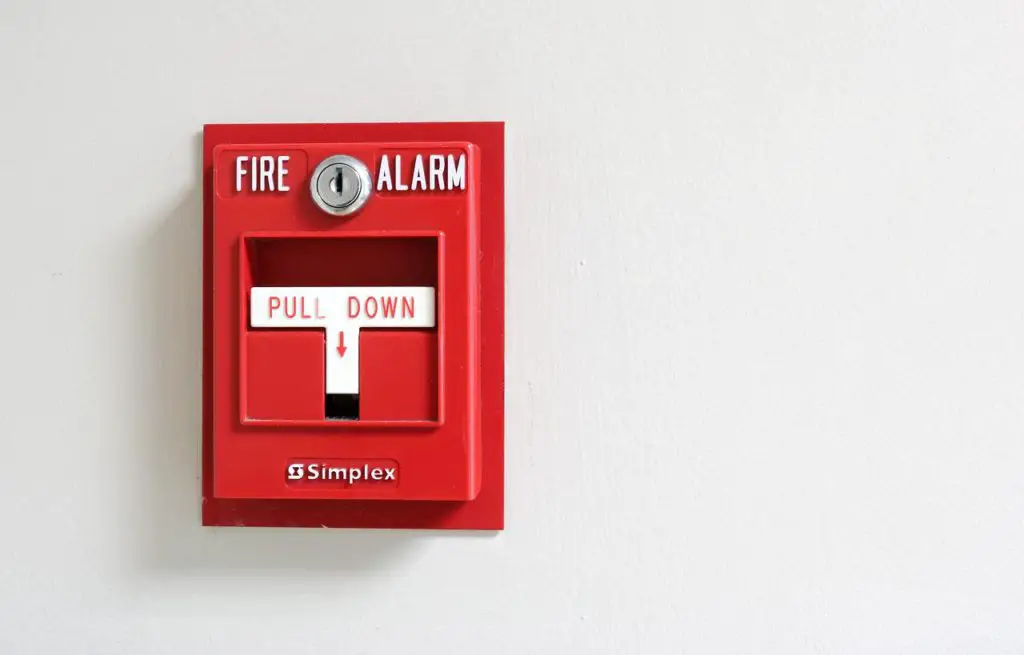
The Google Home Mini is a pocket-sized window to music, podcasts, and any questions you have throughout the day.
A Google speaker is usually reliable, so when it overheats, you’re probably wondering why.
Your Google Home Mini is overheating because it’s in direct sunlight, the power cord is covered up, or it’s stored in an environment that’s too hot. Additionally, a Google Home Mini that got wet or was already damaged can lead to an increased internal temperature.
The rest of this article will go into detail on the reason your Google device is overheating, how to fix it, how to care for it, and when to replace it.
Reasons Your Google Home Mini Runs Hot
Because your Google Home Mini is an electrical device, it’ll naturally run warm.
So, if you combine its natural heat with any of the following factors, it’s a recipe for overheating.
The Google Home Mini Is in Direct Sunlight
Google advises that you keep your Home Mini out of direct sunlight.
The sun not only causes it to overheat, but the UV rays can damage your device through prolonged exposure.
Be sure to use your Home Mini indoors and away from windows to avoid overheating.
The Google Home Mini’s Power Cord Is Covered Up
Ventilation is necessary to keep your Google Home Mini from overheating.
If your power adapter is behind a couch or you sleep on top of it, it can cause your device to overheat because there isn’t proper ventilation.
Make sure to plug your Google Home Mini into a socket that’s easily accessible with enough room for it to breathe.
Should Google Home Mini Stay Plugged-In?
Google Home Mini should stay plugged in because it doesn’t have a battery.
An internal battery is necessary for it to operate without a plug. You can purchase a battery base to make your device portable.
The JOT Portable Battery Base available on Amazon for Google Home Mini is relatively cheap and will negate the need for constant power connection and, thus, negate the need for being in continuous contact with the heat from the power supply.
Additionally, with this base, you get up to eight hours of battery life.
The Google Home Mini Is Stored in a Hot Environment
It would be best if you stored your Google Home Mini in an environment below 95 degrees Fahrenheit (35 degrees Celsius); any warmer, and your device could overheat.
If the heat is broken in your home or you take your speaker outside, external temperature could be the cause.
Again, keep your device away from windows, and if you choose to use it outside, keep it in a shaded area.
The Google Home Mini Got Wet
If you accidentally splashed water on your Google Home Mini or you spilled a drink on it, that could be the cause of it overheating.
When you expose your Home Mini to liquids, the device can short circuit, which leads to overheating and possible damage.
The Google Home Mini Is Damaged
Let’s be real: our personal devices can take a beating, especially if they’re small.
If you’ve had your Google Home Mini for a while, and it has sustained some damage, that could be the culprit of increased internal temperature.
Potential damage includes:
- Dropping the device.
- Taking the device apart and putting it back together.
- Puncturing the device.
- Bending the device.
How Do I Fix Google Home Mini?
Luckily, there are steps you can take to fix your Google speaker when it overheats.
To fix your Google Home Mini, move it to a cooler room and allow it to self temperature-regulate. Reboot your device and if it still doesn’t work, contact Google support or an authorized service provider to have your Home Mini professionally fixed.
How Do You Reboot Google Home Mini?
To reboot a Google Home Mini, find the factory reset button under the power cord, hold down the button for 15 seconds, and your device should reset.
Remember that a factory reset will undo any setting changes you have implemented in your Google Home Mini.
Occasionally, after a factory reset, your speaker won’t work or it won’t answer when you call it.
To fix this, follow these steps:
- Unplug the cord from your Google Home Mini.
- Wait 10 seconds.
- Plug the cord in again.
- Allow the lights to illuminate.
- Repeat until the speaker welcomes you and invites you to get started.
It’s important to note that if one of these solutions doesn’t work, don’t try to fix the problem yourself—take it to a professional.
If you don’t, you could risk further damage to your Google Home Mini.
How To Care for Your Google Home Mini
Follow these care practices to keep your Google Home Mini from overheating and living long:
- Keep your Google speaker in an environment between 32 degrees Fahrenheit (0 degrees Celsius) and 95 degrees Fahrenheit (35 degrees Celsius).
- After unplugging, don’t twist or bend the power adapter cord.
- Unplug from power during a lightning storm.
- Clean the Google Home Mini without chemicals by wiping it with a dry cloth.
When To Replace Your Device
An overheating Google Home Mini isn’t the end of the world.
A lot of the time, your device will self-cool, and you can use it again in better conditions at a cooler temperature.
However, if you compound the overheating with other issues, like slow connection, poor audio quality, or frequent shutting down, it may be time to purchase a new one.
Is Google Home Mini Outdated?
Google Home Mini is an outdated device. Google has it listed as the first generation of Google Mini speakers, so there are newer, better-operating options—like the Google Nest Mini or the Google Nest Audio.
If you want to purchase a new Google Home Mini, you’ll have to do so through Amazon.
The Google Nest is currently available through Google and has better sound quality than the original Home Mini.
Why Is Your Google Home Mini Overheating? To Conclude
Your Google Home Mini overheating is a sign that it’s in the wrong environment.
Aspects like direct sunlight, water, and lack of ventilation lead to too much heat.
Your device should temperature-regulate when in the right environment, but if it’s damaged beyond repair, consider upgrading to a Google Nest.

